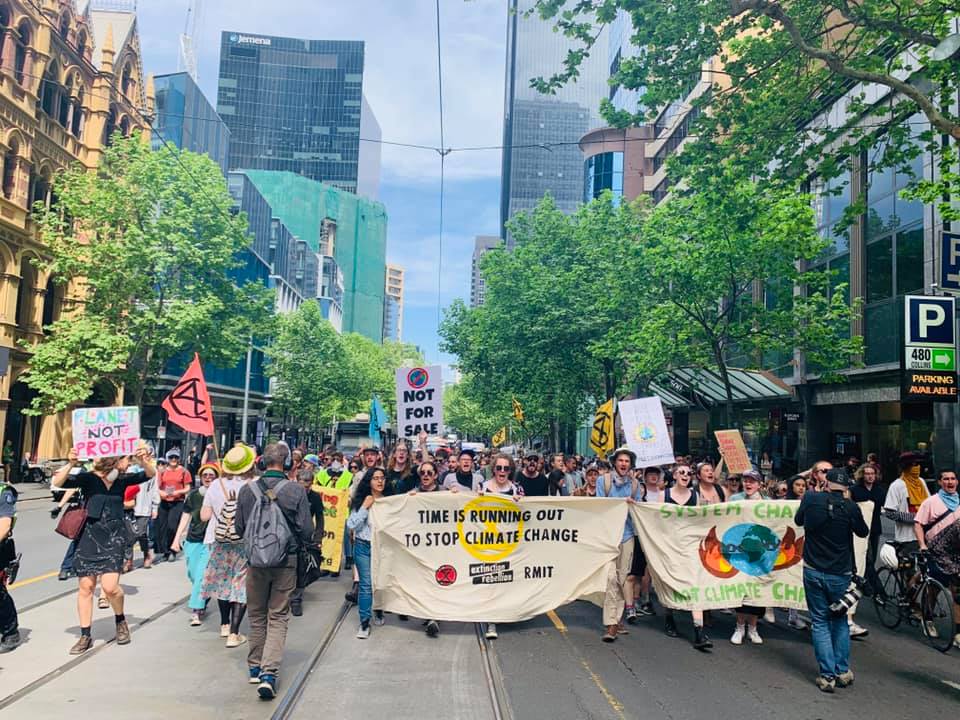Prime Minister Scott Morrison says he’s “looking very carefully” at banning secondary boycotts against businesses servicing the mining industry.
Mr Morrison told Neil Mitchell on 3AW on Friday that while he respected people’s right to protest, they needed to respect businesses while they did it.
Secondary boycotts, in this instance carried out by what Mr Morrison characterised as “anarchist groups”, involve placing economic pressure on the mining industry by targeting smaller providers to encourage them to stop servicing the larger providers.
“Decent small businesses [provide] services to the mining industry, and they’re being blackbanned,” Mr Morrison said.
Adani engineering contractor GHD, for instance, had documents leak recently exposing that internal dissent from staff was delaying work with the mining giant following sustained tactics from anti-Adani protests.
This comes in the wake of widely publicised demonstrations in Melbourne this week at the annual IMARC conference.
“To be able to disrupt people’s jobs, their livelihoods, to harass, it’s ugly, and I don’t think it’s good for our country,” Mr Morrison said.
There is historical president for a legal ban on such practices: secondary boycotts by trade unions were banned by the Competition and Consumer Act 2010, a move that CFMEU secretary John Setka has called “draconian”.
NOW | PM Scott Morrison on the line to Neil Mitchell from Brisbane.
He’s talking tough on protesters, and wants to outlaw “indulgent and selfish practices”.
“There’s a right to protest in this country … but I think they’re really starting to push the envelope.” pic.twitter.com/cCDCFlPQnN
— 3AW Melbourne (@3AW693) October 31, 2019
The ACTU has also criticised this law, saying it does not meet the International Labour Organisation conventions that Australia has signed.
Mr Morrison responded to Mitchell’s question of requiring a permit to protest by saying that was an issue for the states, and that his main concern was protecting businesses affected by these tactics.


